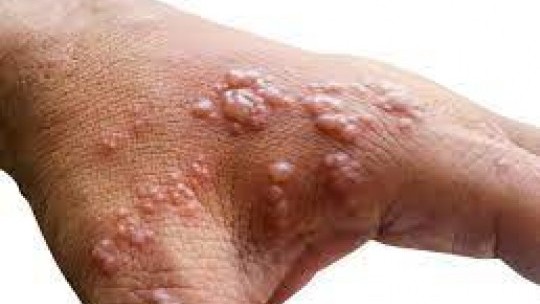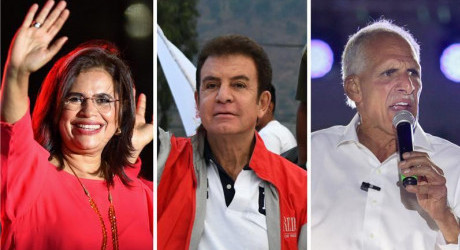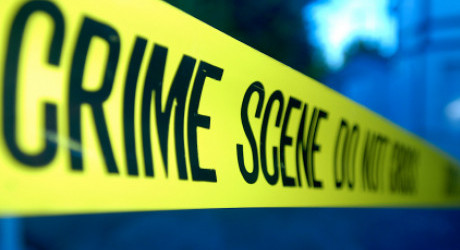.png)
Health Minister Dr. Christopher Tufton, Chief Medical Officer Dr. Jacquiline Bisasor McKenzie and WHO Director-General Dr. Tedros Ghebreyesus
Jamaica has confirmed its first case of monkeypox.
The patient is a male from Clarendon who travelled from the United Kingdom.
Health Minister Dr. Christopher Tufton, who made the revelation at a press conference a short while ago, said the man presented to a health facility on July 5, having arrived in the island five days earlier.
The patient has been isolated and his close contacts quarantined following contact tracing.
Dr. Tufton said the case has triggered the ministry's emergency protocols in line with international health regulations.
Among other things, the emergency operations centre has been activated and a review of all isolation centres is to be done to look at the capacity to manage both monkeypox and COVID-19 cases.
Additionally, he said the necessary health protocols, including surveillance, clinical management, lab management as well as infection prevention and control are being completed for the distribution to health teams islandwide.
The sensitisation of health teams and the public will also continue.
However, Dr. Tufton said it was "business as usual in terms of the functioning of the economy".
Noting that the disclosure was "out of a duty to inform the public but not to raise any undue alarm", the health minister reminded citizens to take personal responsibility to protect themselves and to be "observant sufficiently to understand if you think you are threatened either by a third person, or you feel threatened personally based on symptoms that you have".
Monkeypox is spread when a person comes into contact with an infected animal or rodents, while person-to-person spread is generally uncommon but can occur through direct contact with monkeypox skin legions, contact with clothing or linen used by infected persons, coughing or sneezing of an individual with a monkeypox rash.
The virus enters the body through broken skin, the respiratory tract or through mucus membrane (eyes, nose or mouth).
The incubation period ranges from five to 21 days. Symptoms are usually mild to moderate and consist of fever, intense headache, swelling of the lymph nodes, back pain, muscle aches, general lack of energy or a rash.
There is currently no recommendation for the general pubic to be vaccinated against monkeypox, however, Dr. Tufton said persons experiencing any of these symptoms should isolate immediately and call ahead before visiting a medical centre or doctor.
Chief Medical Officer Dr. Jacquiline Bisasor McKenzie reiterated that monkeypox is a mild disease but said the "public needs to be aware of the risk of getting the disease and to therefore take the necessary precautions".
Similar to the protocols for COVID-19, members of the public are advised to wear a mask in public spaces, frequently wash hands and practice physical distancing.
WHO
The World Health Organization (WHO) has said more than 6,000 cases of monkeypox have now been reported in 58 countries.
As monkeypox cases continue to rise globally, WHO plans to reassess whether the outbreak constitutes a public health emergency of international concern.
WHO defines a public health emergency of international concern as an extraordinary event that constitutes a public health risk to other States through the international spread of disease and may potentially require a coordinated international response.
In late June, WHO's Emergency Committee determined that the outbreak did not meet the criteria for such a declaration.
But as the virus continues to spread, WHO Director-General Dr. Tedros Ghebreyesus wants the committee to take up the issue again, based on the latest data around the epidemiology and evolution of the outbreak.
Dr. Tedros on Wednesday said he will convene the emergency committee during the week of July 18, or sooner if needed.
He noted that testing for the disease "remains a challenge", adding that it is "highly probable that there are a significant number of cases not being picked up".
Europe is currently the epicentre of the monkeypox outbreak, recording more than 80 per cent of the cases globally. But Dr. Tedros disclosed that in Africa, cases are also appearing in countries not previously affected, while record numbers are being seen in places which have prior experience with the disease.
US to double testing
The US Centers for Disease Control (CDC) on Wednesday announced monkeypox testing capacity in the United States will double.
Labcorp will begin testing for monkeypox using the CDC's orthopoxvirus test, making it the first national laboratory to offer the PCR test.
The company will use its largest facility in the U.S. to conduct up to 10,000 tests per week from anywhere in the country, doubling the current testing capacity of the CDC's Laboratory Response Network.
comments powered by Disqus










 All feeds
All feeds







